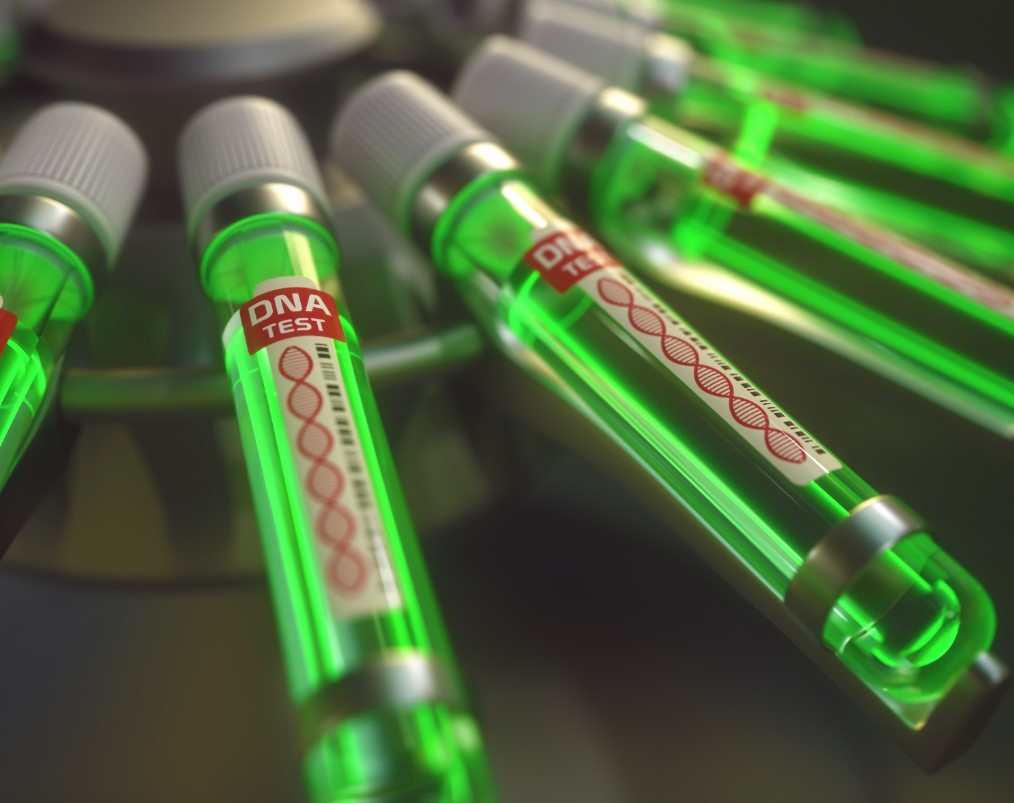Genetic Testing and 6 Types of Genetic Testing
Genetic testing analyzes a person’s chromosomes or DNA to look for changes associated with genetic diseases.
Doctors may use the results of these tests to identify an existing genetic condition, determine a person’s risk for developing a genetic illness or of passing one to his or her children in the future, and guide treatment.
Genetic tests can also be used to screen a developing or newborn baby for disease.
HOW GENETIC TESTING WORKS
Inside the nucleus of each cell in the human body are 23 pairs of chromosomes.
Each chromosome contains tightly coiled lengths of deoxyribonucleic acid (DNA), a double helix-shaped molecule.
DNA holds the code for the production of proteins that determine the body’s structure and function.
Genes are the pieces of DNA that determine the order of amino acids in a particular protein.
Changes to genes, called mutations, can cause disease. For example, Huntington’s disease is caused by a mutation in the HTT gene.
This gene codes for producing a protein that is critical for the function of nerve cells in the brain.
Some gene mutations happen spontaneously as cells divide. Others are passed down through families.
Genetic tests look for gene mutations, chromosomal problems, or protein abnormalities to identify whether a person has or is at peril for a genetic disease.
6 TYPES OF GENETIC TESTING
Several types of genetic tests are available:
- Diagnostic testing is used to diagnose a genetic disorder in a person who has symptoms. The results of the test can help guide treatment decisions.
- Predictive or pre-symptomatic testing looks for gene changes that increase the risk of developing a genetic condition before symptoms appear. This sort of test may be useful for people who have a family history of an inherited condition.
- Carrier testing is done to find out whether someone carries a gene that causes disease. Carriers do not have symptoms, but they can pass the defective gene to their children, becoming carriers or developing the disease. Certain genetic diseases happen when a person has only one copy of the defective gene. Other diseases require two copies of the gene to cause symptoms. Prospective parents can use carrier testing to learn whether they are at risk of having a child with a particular genetic condition.
- Preimplantation genetic diagnosis helps prospective parents avoid having a child with a particular genetic disease. The test detects genetic abnormalities in embryos that have been created using assisted reproductive technologies such as in-vitro fertilization. Then the parents can choose embryos without these abnormalities to implant in the mother’s uterus.
- Prenatal testing identifies a problem with a baby’s genes or chromosomes before birth. It can help parents make decisions about the pregnancy or plan treatment once the baby is born. Because a needle is used to withdraw the amniotic fluid, this test causes a small increased risk of miscarriage.
- Newborn screening is done within a day or two after a baby is born to detect genetic disorders. All states test newborns for congenital hypothyroidism and phenylketonuria (PKU), an inherited disorder that can cause delayed development and intellectual disabilities if it is not treated.
HOW GENETIC TESTS ARE DONE
To have a genetic test, you will see your primary care doctor, a geneticist, or another specialist.
The health care provider will take a sample of your blood, saliva, cells from the inside of your cheek or other tissue. A newborn’s blood is taken with a heel stick.
During pregnancy, genetic testing is done with amniocentesis or chorionic villus sampling.
Amniocentesis removes a small quantity of amniotic fluid from around the baby using a needle placed in the mother’s abdomen.
Chorionic villus sampling removes a small tissue sample from the placenta through the mother’s abdomen or cervix.
The sample is sent to a laboratory. Technicians analyze it for specific changes to the DNA, chromosomes, or proteins unique to the suspected genetic disorder.
WHAT THE RESULTS MEAN
Generally, a positive test result means that you have the genetic change that was being tested. A negative test implies that you do not have that genetic change.
However, the results of a genetic test are not always easy to interpret.
Some tests identify the presence of a single gene that causes disease 100 percent of the time.
Others indicate that you or your family members are at higher risk for a particular genetic condition.
For example, testing positive for the BRCA1 or BRCA2 gene means that a woman is most likely to contract breast or ovarian cancer, but it cannot confirm that she will get the disease.
Similarly, testing negative for a gene does not mean you will never get the disease.
Sometimes results are inconclusive, meaning that the test cannot definitively determine your risk.
Your doctor, geneticist, or genetic counselor will discuss the results of your genetic test and its implications with you.
The doctor will let you know whether you need further testing or treatment based on the findings.
Because genetic disorders can be either inherited or familial (run in families), a positive result might suggest the need for your relatives also to get tested.
PROS AND CONS
A genetic test can give you the information you need to plan for and manage your health care or your children’s care.
Once you have the results, you can take steps to prevent the disease or begin getting treatment to improve your outlook.
However, often the results of genetic testing are not clear cut. Many diseases are caused by multiple genes or by a combination of genes and environmental factors.
Sometimes the results only indicate an increased likelihood of getting a disease, rather than confirming that you will definitely get the disease.
When a genetic test is inconclusive, or no treatment for the disease exists, the result can cause uncertainty and anxiety.
Some people worry that their health insurance provider or employer might use their genetic test results against them.
The Genetic Information Nondiscrimination Act (GINA) brought to life in 2008 prohibits employers or health insurance providers from discriminating against genetic testing.
However, GINA does not cover long-term care, disability, or life insurance.
Resources
Websites
“Frequently Asked Questions About Genetic Testing.” National Human Genome Research Institute. July 5, 2017. https://www.genome.gov/19516567/ (accessed December 17, 2018).
“Genetic Testing.” Mayo Clinic. January 6, 2018. https://www.mayoclinic.org/tests-procedures/genetic-testing/about/pac-20384827 (accessed December 17, 2018).
“Genetic Testing: What You Should Know.” FamilyDoctor.org (American Academy of Family Physicians). March 27, 2017. https://familydoctor.org/genetic-testing-what-you-should-know/?adfree=true (accessed December 17, 2018).
“What is genetic testing?” Genetics Home Reference. December 11, 2018. https://ghr.nlm.nih.gov/primer/testing/genetictesting (accessed December 17, 2018).
Organizations
Genetic and Rare Diseases Information Center, P.O. Box 8126, Gaithersburg, MD, 20898-8126, (888) 205-2311, (301) 251-4925, Fax: (301) 251-4911, https://www.rarediseases.info.nih.gov .
National Human Genome Research Institute, 31 Center Drive, MS 2152, Bethesda, MD, 20892-2152, (301) 402-0911, Fax: (301) 402-2218, https://www.genome.gov .
National Society of Genetic Counselors, 330 North Wabash Avenue, Suite 2000, Chicago, IL, 60611, (312) 321-6834, nsgc@nsgc.org, https://www.nsgc.org.









